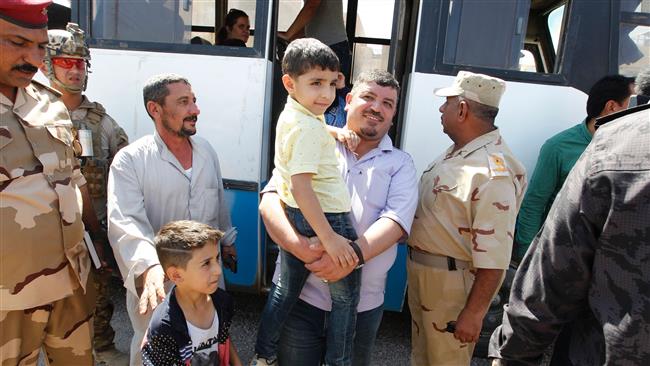
RNA - According to Sohaib al-Rawi, the governor of the western province of Anbar, 40 families were cleared to come back on Saturday after they passed background checks for having possible links with Daesh. Their home districts were declared safe.
Rawi added that some 200 other families also returned to the suburbs on Saturday.
Fallujah, a major city in Anbar, which is located about 65 kilometers west of the capital Baghdad, fell to Daesh in January 2014 but was fully retaken on June this year after weeks of an intense counter-terror operation.
Once populated by some 300,000 residents, the city now resembles a ghost town, ragged from conflict, but hopeful to embrace its people and become vibrant again.
Only a small number of the city’s neighborhoods, particularly in the north, have so far been cleared from explosives and booby-traps left behind by Daesh terrorists. The southern parts of the city, which sustained much more damage than the northern parts, still need to be cleared of planted explosive devices before other families are allowed to return.
The provincial capital city of Ramadi was also fully liberated in December last year, but due to massive destruction caused by Daesh and the explosives left behind by the terrorists the city still remains largely uninhabitable.
Over a hundred civilians lost their lives by planted explosives in Ramadi as they initially tried to return to their homes without permission from authorities. The incidents prompted the government to turn away other incoming families for safety reasons.
After retaking these two cities, Iraqi forces further tightened the noose around Daesh in the volatile province and began retaking more towns and villages, leaving Daesh with sparse presence in Anbar.
The government forces are now largely heading north, preparing for a highly-anticipated offensive against Daesh in Mosul, the capital of the northern province of Nineveh, and the terror group’s last remaining urban bastion in Iraq and its de facto capital in the Arab country.
111/847/C